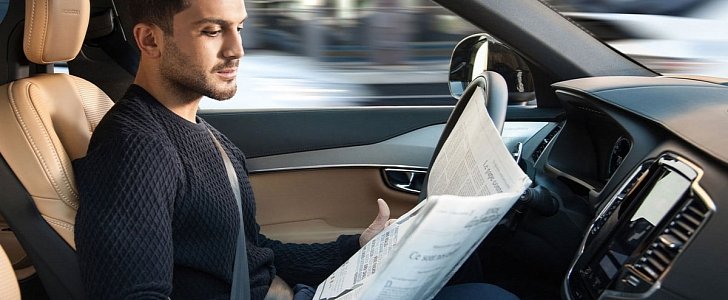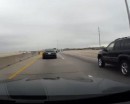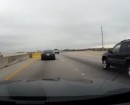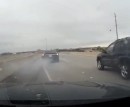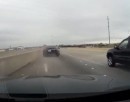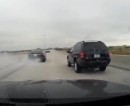Carmakers are overselling the capabilities of their vehicles and it results in many crashes that could easily be avoided, Thatcham Research and the ABI (Association of British Insurers) highlights in a new report.
In other words, by using terms like “autonomous,” “self-driving,” “autopilot” or “ProPilot” in the marketing and literature of their cars, makers send the wrong message to drivers that the vehicles can function independently. They don’t, and the truly driver-less car is still many years away, the report cited by Just-Auto stresses.
To prove a point, Thatcham Research took a Tesla Model S out on the test track, to see if it would avoid collision when on autopilot. In an initial run, it did so by detecting that the car in front had stopped and slowing down. On the second run, when the car in front made a sudden change of lanes, it failed to stop and avoid crashing into an obstacle on the road. The BBC video below includes the entire test.
There is a great need for carmakers to take more responsibility in how they describe their vehicles, Matthew Avery, of Thatcham Research, explains. Right now, it’s clear that using the terms above sends the wrong message to drivers, who rely too much on the existent technology because they’re being told it can do more than it actually can.
“Fully automated vehicles that can own the driving task from A to B, with no need for driver involvement whatsoever, won't be available for many years to come. Until then, drivers remain criminally liable for the safe use of their cars and, as such, the capability of current road vehicle technologies must not be oversold,” Avery says.
“There's a problem with the manufacturers trying to introduce technology and consumers not being ready for it, not being sure if it's automated or 'Do I need to keep watching?'" he adds. “We want it very clear. Either you are driving - assisted - or you're not driving – automated.”
In response, Tesla says in a statement that their marketing and literature includes the mention that drivers should keep their hands on the wheel at all times, even when Autopilot is switched on.
To prove a point, Thatcham Research took a Tesla Model S out on the test track, to see if it would avoid collision when on autopilot. In an initial run, it did so by detecting that the car in front had stopped and slowing down. On the second run, when the car in front made a sudden change of lanes, it failed to stop and avoid crashing into an obstacle on the road. The BBC video below includes the entire test.
There is a great need for carmakers to take more responsibility in how they describe their vehicles, Matthew Avery, of Thatcham Research, explains. Right now, it’s clear that using the terms above sends the wrong message to drivers, who rely too much on the existent technology because they’re being told it can do more than it actually can.
“Fully automated vehicles that can own the driving task from A to B, with no need for driver involvement whatsoever, won't be available for many years to come. Until then, drivers remain criminally liable for the safe use of their cars and, as such, the capability of current road vehicle technologies must not be oversold,” Avery says.
“There's a problem with the manufacturers trying to introduce technology and consumers not being ready for it, not being sure if it's automated or 'Do I need to keep watching?'" he adds. “We want it very clear. Either you are driving - assisted - or you're not driving – automated.”
In response, Tesla says in a statement that their marketing and literature includes the mention that drivers should keep their hands on the wheel at all times, even when Autopilot is switched on.
